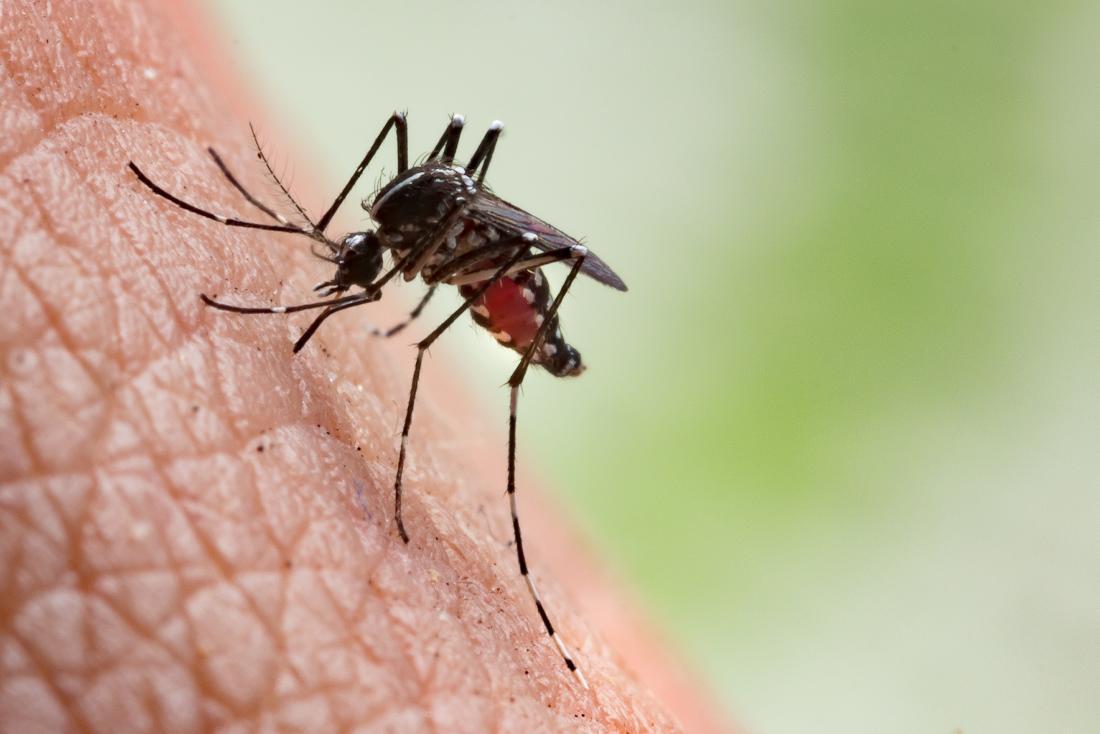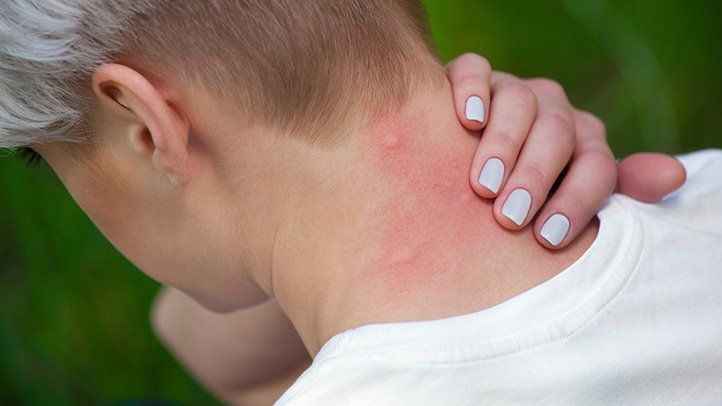Summer is a time for picnics and outdoor fun—but the warm weather also brings out mosquitos and annoying biting flies.
Dr. Irum Noor, an allergist/immunologist for ENT and Allergy Associates, says, “Although most bug bites are harmless, some can spread dangerous diseases like Lyme disease, dengue, Zika virus, and malaria. If you’re visiting areas with known insect-borne diseases, it’s important to take steps to reduce your risk.”

To help prevent bug bites, we recommend the following tips:
- Use insect repellent. To protect against mosquitoes, ticks, and other bugs, use insect repellent that contains 20 to 30 percent DEET on exposed skin and clothing. Always follow the instructions on the repellent and reapply as directed.
- Wear appropriate clothing. If you know you will be going out at night or hiking in a densely-wooded area, dress appropriately to prevent bug bites. Cover exposed skin as much as possible by wearing long-sleeved shirts, pants, socks, and closed shoes instead of sandals. For additional protection, pull your socks up over your pants and tuck your shirt into your pants. You can also pre-treat outer layers of clothing with insect repellent containing the active ingredient Permethrin. Follow the directions carefully and allow the clothes to dry for at least two hours before wearing them.
- Use bed nets. If sleeping in the great outdoors, use bed nets to protect against mosquitoes. Look for one that has been pre-treated with a pyrethroid insecticide. If it doesn’t reach the floor, tuck it under the mattress for maximum protection.
- Pay attention to outbreaks. Check the CDC Travel Health Notices website, and heed travel warnings and recommendations.
- Check your clothing for ticks. Ticks may be carried into the house on clothing. Any ticks that are found should be removed. Tumble dry clothes in a dryer on high heat for 10 minutes to kill ticks on dry clothing after you come indoors.
- Examine gear and pets. Bugs and ticks can ride into the home on clothing and pets, then attach to a person later, so carefully examine pets, coats, and backpacks.
- Shower soon after being outdoors. Showering within two hours of coming indoors has been shown to reduce your risk of getting tick-borne diseases. Showering may help wash off unattached bugs and ticks, and it is a good opportunity to do a tick check.

Sometimes, despite one’s best efforts, bug bites still happen. Fortunately, most bug bites and stings can be safely treated at home.
To treat bug bites and stings at home, we recommend the following tips:
- For painful bites, such as a bee sting, take an over-the-counter painkiller, such as acetaminophen or ibuprofen. Always follow the directions on the label and use the correct dose.
- For bites that itch, apply an ice pack or an over-the-counter anti-itch cream, such as hydrocortisone. Another option is to take an over-the-counter oral antihistamine.
- To reduce swelling, apply an ice pack to the bite.
If you experience any serious symptoms after a bug bite, such as a rash, fever, or body aches, see your doctor immediately. Make sure you tell the doctor about your recent bite so that they can examine you for a transmitted disease.
ENT and Allergy Associates, LLP (ENTA) is the largest ear, nose, throat, allergy, and audiology practice in the country. With more than 55 office locations throughout the tri-state area, the practice sees more than 100,000 patients per month. Additionally, with more than 240 physicians, ENTA has the largest pool of board-certified/fellowship-trained Otolaryngologists, Facial Plastic Surgeons, and Allergists in the country – many of whom have been voted “Top Doctor” by leading publications.
Find an ENT & Allergy Associates Doctor Near You, or Explore More Blog Topics

[2].png)